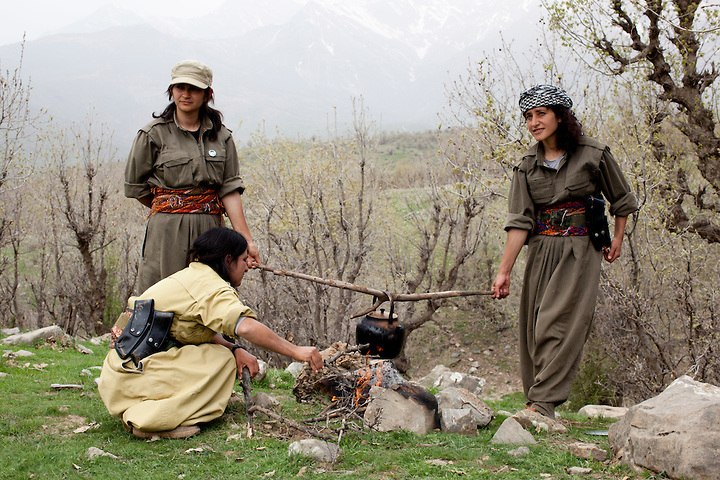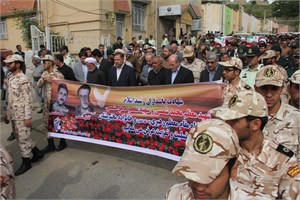The Party for a Free Life in Kurdistan (PJAK), has warned President Hassan Rouhani that if Tehran continues military operations against Kurdish forces in Iran, the group will “turn Iran into a second Syria”.
PJAK, affiliated with the Turkish Kurdistan Workers Party (PKK), has carried out armed attacks in Iran’s Kurdistan Provinces since 2004, with the aim of establishing an autonomous Kurdish region.
In October 2011, the President of Iraqi Kurdistan, Massoud Barzani, said that the Iraqi Kurdistan Regional Government and the PJAK had agreed that Iranian gorup would end its armed activities; however, clashes between PJAK and the Iranian Revolutionary Guards Corps have continued, with deaths on both sides.
Last week Fars News, close to the Revolutionary Guards, reported that an IRGC officer had been killed in border clashes with “armed bandits” — a likely reference to the PJAK.
Other Iranian media reported in May that two IRGC officers had been killed in clashes with the PJAK, posting images of the “martyrs”:
Kurdish political activist Shamal Bashiri said that Tehran was passing through “a sensitive stage and Hassan Rouhani is forming a new government, and he is not ready to launch a large-scale military operation”.
Bashiri said that the declaration of a cease-fire with Iran was in Kurdish interests, but warned that if Iran “proceeded to break the cease-fire, the country will see military operations similar to the Syrian war”.
Analyst Wladimir van Wilgenburg adds another dimension to the increased tensions between the PJAK and Tehran:
Iran is not happy with the PKK-Turkey talks for a political resolution, although Tehran also received the [Syrian Kurdish leaders] Salih Muslim [PYD] and Abdulhakim Bashar (KDP-S) recently. Iran wants the peace process in Turkey to fail.
The PKK decided in its last meeting to uphold the ceasefire with Iran and mostly focuses on Syria’s Kurds now.
PJAK has also paid more attention to Syria, amid growing violence between Kurdish militias and Islamist insurgent factions in the north of the country.
Earlier this month, PJAK said that it was “ready to send fighters to Syrian Kurdistan to fight beside their people.”
(Featured Images: Women PJAK insurgents at their camp in the mountains of the Iran-Iraq border — Sebastian Meyer)


